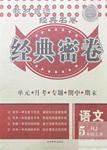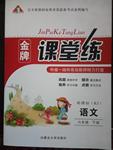题目内容
Keeping Safe in Your House During a Fire
Thought you may not think you’ll ever fall victim to a house fire, it’s better to be prepared to avoid panicking. To increase your chances of survival, just follow these steps.
(1)React as soon as you hear your smoke alarm go off. On hearing your smoke detector or alarm going off and seeing a fire, exit your home as safely as possible. 1.
(2)Safely exit through doors. If you don’t see smoke at the door, open it slowly and pass through it after making sure the door feels cool. If there is a fire preventing you from exiting the room, close the door.
(3)Protect yourself from smoke inhalation(吸入). Get low to the floor and crouch or crawl on your hands and knees to avoid the smoke. 2. Cover your nose and mouth if you have to walk by or through a heavily smoke-filled room.
(4) 3. If your clothes catch fire, immediately stop what you’re doing, drop flat to the ground, and roll around until you put the fire out.
(5)Prevent the smoke if you can’t get out. 4. Close your door and cover all vents(通风口)and cracks(缝隙)around it with cloth or tape to keep the smoke out.
(6) Call for help from a second story window. 5. You can take a sheet or something else---white preferably---and hang it out the window to signify that you needed help when the first responders get there.
A. If you are trapped in your second story room, get to an area where people can find you.
B. Do not try to get your phone, valuables, or your other important possessions.
C. Smoke inhalation causes people to become unconscious.
D. Escape from a second story window if you can.
E. You are probably a lot safer by closing doors.
F. Stop, drop, and roll if your clothes catch fire.
G. If you can’t escape your home, don’t panic.
 经典密卷系列答案
经典密卷系列答案 金牌课堂练系列答案
金牌课堂练系列答案 三新快车金牌周周练系列答案
三新快车金牌周周练系列答案


 try to remember good moments to making me feel better. When I miss some friends or family member I also try to remember those happy moments we were spent together. In my opinion, the best way to help people be happy in life are to make them laugh every time we are feeling down. Also by give them love you can make them feel sure about themselves.
try to remember good moments to making me feel better. When I miss some friends or family member I also try to remember those happy moments we were spent together. In my opinion, the best way to help people be happy in life are to make them laugh every time we are feeling down. Also by give them love you can make them feel sure about themselves.